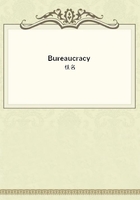
第9章 THE RABOURDIN HOUSEHOLD(8)
Houses and what they contain vary comparatively but little, and are not liable to disappear. After pointing out the means of making a tax-list on personal property which should be more impartial than the existing list, Rabourdin assessed the sums to be brought into the treasury by indirect taxation as so much per cent on each individual share. A tax is a levy of money on things or persons under disguises that are more or less specious. These disguises, excellent when the object is to extort money, become ridiculous in the present day, when the class on which the taxes weigh the heaviest knows why the State imposes them and by what machinery they are given back. In fact the budget is not a strong-box to hold what is put into it, but a watering-pot; the more it takes in and the more it pours out the better for the prosperity of the country. Therefore, supposing there are six millions of tax-payers in easy circumstances (Rabourdin proved their existence, including the rich) is it not better to make them pay a duty on the consumption of wine, which would not be more offensive than that on doors and windows and would return a hundred millions, rather than harass them by taxing the thing itself. By this system of taxation, each individual tax-payer pays less in reality, while the State receives more, and consumers profit by a vast reduction in the price of things which the State releases from its perpetual and harassing interference. Rabourdin's scheme retained a tax on the cultivation of vineyards, so as to protect that industry from the too great abundance of its own products. Then, to reach the consumption of the poorer tax-payers, the licences of retail dealers were taxed according to the population of the neighborhoods in which they lived.
In this way, the State would receive without cost or vexatious hindrances an enormous revenue under three forms; namely, a duty on wine, on the cultivation of vineyards, and on licenses, where now an irritating array of taxes existed as a burden on itself and its officials. Taxation was thus imposed upon the rich without overburdening the poor. To give another example. Suppose a share assessed to each person of one or two francs for the consumption of salt and you obtain ten or a dozen millions; the modern "gabelle"disappears, the poor breathe freer, agriculture is relieved, the State receives as much, and no tax-payer complains. All persons, whether they belong to the industrial classes or to the capitalists, will see at once the benefits of a tax so assessed when they discover how commerce increases, and life is ameliorated in the country districts.
In short, the State will see from year to year the number of her well-to-do tax-payers increasing. By doing away with the machinery of indirect taxation, which is very costly (a State, as it were, within a State), both the public finances and the individual tax-payer are greatly benefited, not to speak of the saving in costs of collecting.
The whole subject is indeed less a question of finance than a question of government. The State should possess nothing of its own, neither forests, nor mines, nor public works. That it should be the owner of domains was, in Rabourdin's opinion, an administrative contradiction.
The State cannot turn its possessions to profit and it deprives itself of taxes; it thus loses two forms of production. As to the manufactories of the government, they are just as unreasonable in the sphere of industry. The State obtains products at a higher cost than those of commerce, produces them more slowly, and loses its tax upon the industry, the maintenance of which it, in turn, reduces. Can it be thought a proper method of governing a country to manufacture instead of promoting manufactures? to possess property instead of creating more possessions and more diverse ones? In Rabourdin's system the State exacted no money security; he allowed only mortgage securities;and for this reason: Either the State holds the security in specie, and that embarrasses business and the movement of money; or it invests it at a higher rate than the State itself pays, and that is a contemptible robbery; or else it loses on the transaction, and that is folly; moreover, if it is obliged at any time to dispose of a mass of these securities it gives rises in certain cases to terrible bankruptcy.
The territorial tax did not entirely disappear in Rabourdin's plan,--he kept a minute portion of it as a point of departure in case of war;but the productions of the soil were freed, and industry, finding raw material at a low price, could compete with foreign nations without the deceptive help of customs. The rich carried on the administration of the provinces without compensation except that of receiving a peerage under certain conditions. Magistrates, learned bodies, officers of the lower grades found their services honorably rewarded;no man employed by the government failed to obtain great consideration through the value and extent of his labors and the excellence of his salary; every one was able to provide for his own future and France was delivered from the cancer of pensions. As a result Rabourdin's scheme exhibited only seven hundred millions of expenditures and twelve hundred millions of receipts. A saving of five hundred millions annually had far more virtue than the accumulation of a sinking fund whose dangers were plainly to be seen. In that fund the State, according to Rabourdin, became a stockholder, just as it persisted in being a land-holder and a manufacturer. To bring about these reforms without too roughly jarring the existing state of things or incurring a Saint-Bartholomew of clerks, Rabourdin considered that an evolution of twenty years would be required.